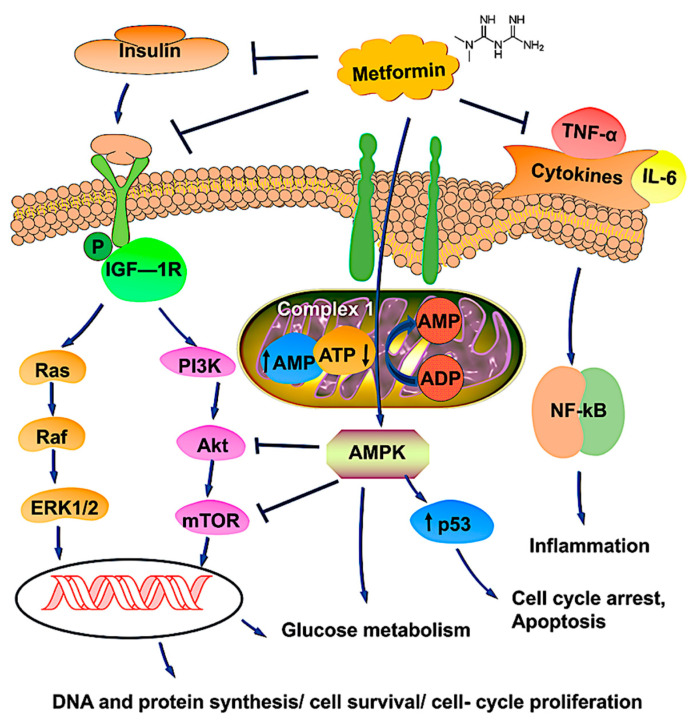Figure 1.
Schematic representation of metformin’s possible mechanism of action in OvCa therapy. Metformin, a first-line anti-diabetic drug, is likely to be associated with a reduced risk of cancer for those with T2DM. The most common pathway involves the activation of AMPK, which regulates energy metabolism by modulating complex 1 of the respiratory chain in mitochondria by changes in the AMP/ATP ratio. Activated AMPK upregulates the tumor suppressor gene p53, which induces apoptosis and cell cycle arrest. Metformin binds with insulin, IGF, and cytokine receptors and modulates pathways involved in tumor progression. Upon binding, metformin inhibits the PI3K/AKT/mTOR and Ras/Raf/ERK pathways, leading to reductions of DNA synthesis and cell proliferation, thereby causing tumor cell death. Metformin, through AMPK activation and mTOR inhibition, could increase glucose uptake and glycolysis. Overall, metformin promotes phosphorylation, blocking nuclear translocation and impairing gene transcription, processes involved in cell survival, gluconeogenesis, and protein synthesis. The arrows ↑ and ↓ indicates upregulation and downregulation, respectively.

